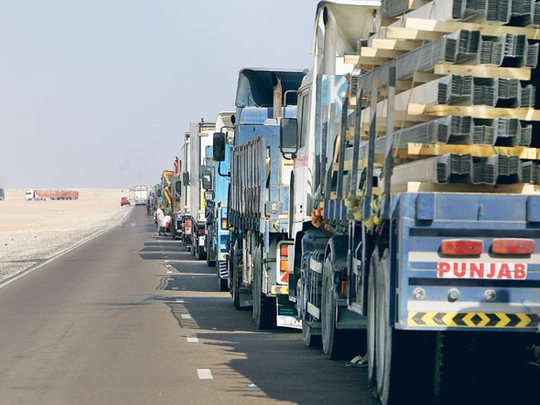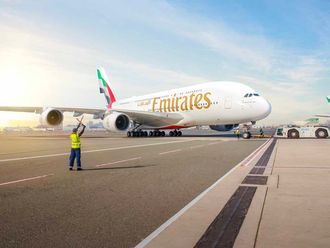
Riyadh: The six Gulf Coopeation Council (GCC) states on Tuesday decided to shelve a customs union plan by at least two years. The decision was taken at a meeting of GCC ministers of foreign affairs, finance and economy held in Jeddah.
Talking to the media after the meeting, Kuwaiti Finance Minister Mustafa Al Shamali, however, said the agreement on the customs union signed by the six countries about seven years ago was still on track despite the fact that some countries were late in applying its provisions.
"I do not want to say that there are hurdles facing the execution of the agreement but definitely there are differences of opinion among us," he said.
The six countries could not agree on the modality for the distribution of customs revenues nor the mechanism of collection.
However, Al Shamali said GCC countries might start implementing an automatic customs clearance system this year as against a manual system they are using now. The Kuwaiti minister, whose country is chairing the current GCC session, said some countries were not willing to implement all the requirements of the union.
"The financial, economic, commercial and industrial committees are studying these issues which will be discuss at the right time," he added.
Al Shamali said that the GCC customs union would boost the six countries' role in the World Trade Organisation and would enable them to have a say in international trade policies. He said the joint meeting of the ministers of foreign affairs, finance and economy also discussed the ongoing negotiations with sisterly countries and economic blocs. He added that a study on the subject would be completed by March.
Abdul Rahman Al Attiyah, GCC Security General, said that the GCC will not proceed with the European Union Free Trade Agreement negotiations until the EU meets the demands set by the GCC. "Negotiations will be put on hold until the EU complies with the GCC countries' demands," he said.
The customs union is aimed at making the GCC a zone in which the customs charges, taxes and procedures and rules restricting trade would be abolished. In this zone, a unified custom tariff of five per cent towards the rest of the world would be applied.
Al Shamali said the finance and economy ministers will ask GCC leaders to extend the period they determined for the finalisation of the customs union by a few more years.












